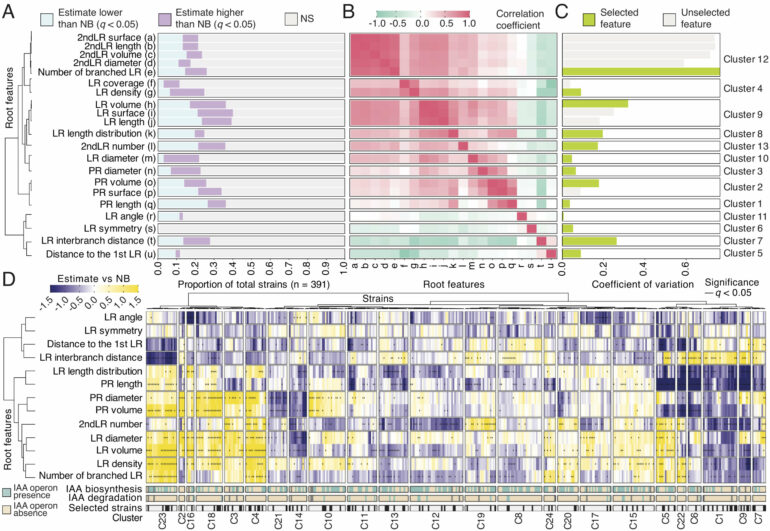Researchers have revealed for the first time how a mechanism that controls root development in plants enables them to cope better with environmental stress conditions.
A team of plant scientists from the University of Nottingham have discovered a novel regulatory mechanism that shows how plant microbiota harmonizes with plant roots to control their branching. The findings have been published in the Proceedings of the National Academy of Science.
Plants growing in natural ecosystems live alongside a multitude of microorganisms—virus-like particles, bacteria, fungi, and oomycetes—these are known as the microbiota. Some of these microbes help plant growth and others can have a detrimental effect, a balance among them is essential to guarantee plant health.
In this study researchers found that the plant microbiota regulates root architecture in the model plant Arabidopsis thaliana, allowing plants to adapt their roots to better take up water and nutrients from the soil in changing environments.
This discovery significantly advances current knowledge on how plants integrate microbial function into mechanisms of root branching and could guide future microbial-based solutions to increase food production in eroded, and nutrient-poor soils, where plant performance relies on root function.
“Identifying this alternative microbiota-driven mechanism will allow us to optimize the shape of the root system, using microbial-based approaches, to increase its capacity for water and mineral nutrients uptake, plant anchorage, and also interaction with beneficial soil microbiota in response to climate change,” says Mathieu Gonin, research fellow from the School of Biosciences at the University of Nottingham.
The results are of great relevance, Mathieu continued, because finding microbiota-driven pathway of root branching plasticity in natural ecosystems when microbes are omnipresent could be the starting point to study the interactions among the other distinct regulatory branches of root branching (auxin, nutrients, and the immune system) contributing to the integration of environmental cues, both biotic and abiotic, into the endogenous developmental program to modulate lateral root plasticity.
More information:
Mathieu Gonin et al, Plant microbiota controls an alternative root branching regulatory mechanism in plants, Proceedings of the National Academy of Sciences (2023). DOI: 10.1073/pnas.2301054120
Provided by
University of Nottingham
Citation:
New research roots out new mechanism for branching in plants (2023, April 3)



